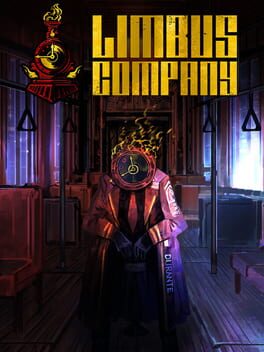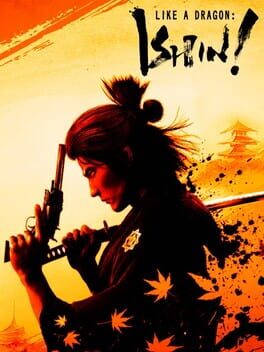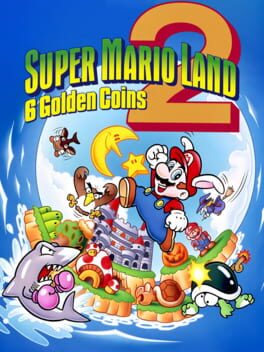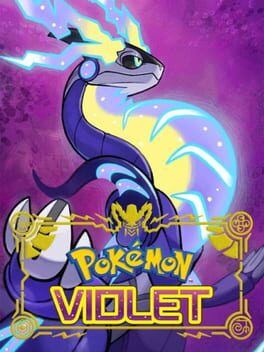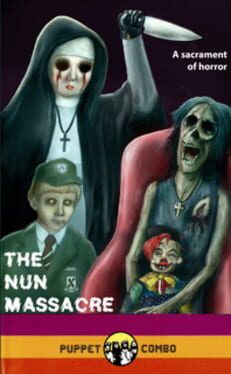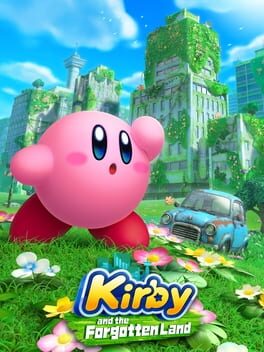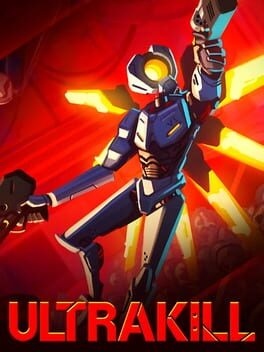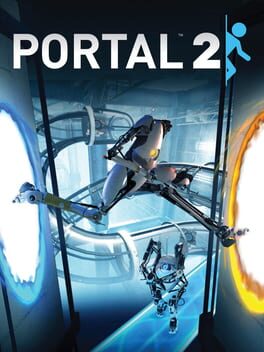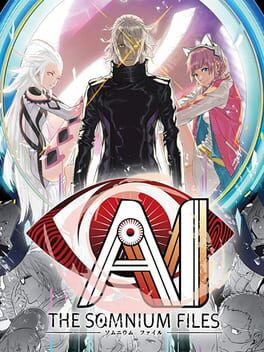turnaboutlies
69 Reviews liked by turnaboutlies
Resident Evil 4
2023
It’s no small task remaking what is perhaps the dictionary definition of a game changer. Capcom’s groundbreaking 2005 classic, for better or worse, brought survival horror to the masses with its now standard over-the-shoulder shooting style and adaptive difficulty. Resident Evil 4’s signature mechanics have been refined and incorporated into its sequels as well as remakes of its predecessors. And so ‘RE4R’ is not as much a reinvention, more rather a preservation, a celebration, of its contribution to the RE canon.
That is not to discredit a variety of fun new additions. The ‘open zone’ level design now makes the village, castle and overall world (‘somewhere in Europe’) feel real and connected, encouraging exploration and discovering secrets new and old. The treasure seeking is all the more engaging with the furthered mechanic of adding gems to trinkets to increase their worth. The puzzles have been reinvented but more or less capture the fun and challenge of the originals: I spent longer on those cyber-circuits than a number of early Silent Hill puzzles.
More than anything, Resident Evil 4 just has the most fun story. Sure, it’s pure schlock - rescuing the president’s daughter from evil Europeans - but the balance of horror, action and adventure is perfectly achieved. The remake enhances that balance through both its gorgeous presentation and refined gameplay, although my only gripe is it may be too refined. There’s still a handful of cheesy quips and b-movie character stereotypes that made it into RE4R, but for the most part it strives for a certain self seriousness, often playing things safe. It can sometimes render the outrageous plot a bit clinical. Playing on hardcore - recommended for players of the o.g - can certainly make things exciting particularly in horde situations but I still found a number of bosses and previously challenging Ashley-escort segments a little dialled down compared to before. It’s no secret that games nowadays are made easier to play in order to appeal to a wider demographic but the imbalance is quite noticeable here - with or without that adaptive difficulty mechanic.
But small gripes aside, the remake manages to be both faithful and entertaining in its own right. Purists will argue it’s not the true way to play Resident Evil 4, but thankfully the heavily ported original is still an available option on most platforms - the opposite of such is my key concern with a remake like Silent Hill 2 (fingers crossed it doesn’t suck). Anyways, onwards and upwards: let’s see what they do with Resident Evil 5.
That is not to discredit a variety of fun new additions. The ‘open zone’ level design now makes the village, castle and overall world (‘somewhere in Europe’) feel real and connected, encouraging exploration and discovering secrets new and old. The treasure seeking is all the more engaging with the furthered mechanic of adding gems to trinkets to increase their worth. The puzzles have been reinvented but more or less capture the fun and challenge of the originals: I spent longer on those cyber-circuits than a number of early Silent Hill puzzles.
More than anything, Resident Evil 4 just has the most fun story. Sure, it’s pure schlock - rescuing the president’s daughter from evil Europeans - but the balance of horror, action and adventure is perfectly achieved. The remake enhances that balance through both its gorgeous presentation and refined gameplay, although my only gripe is it may be too refined. There’s still a handful of cheesy quips and b-movie character stereotypes that made it into RE4R, but for the most part it strives for a certain self seriousness, often playing things safe. It can sometimes render the outrageous plot a bit clinical. Playing on hardcore - recommended for players of the o.g - can certainly make things exciting particularly in horde situations but I still found a number of bosses and previously challenging Ashley-escort segments a little dialled down compared to before. It’s no secret that games nowadays are made easier to play in order to appeal to a wider demographic but the imbalance is quite noticeable here - with or without that adaptive difficulty mechanic.
But small gripes aside, the remake manages to be both faithful and entertaining in its own right. Purists will argue it’s not the true way to play Resident Evil 4, but thankfully the heavily ported original is still an available option on most platforms - the opposite of such is my key concern with a remake like Silent Hill 2 (fingers crossed it doesn’t suck). Anyways, onwards and upwards: let’s see what they do with Resident Evil 5.
Limbus Company
2023
Finished the second chapter, there's a third out already (I'm not sure how many there are right now. Twelve?) and I'll get through it sooner than later but for the time being this is more of a mechanical and presentational overview. I'll update this (or make a different review) after the plot has gotten a lot farther in since it's still pretty clearly setup, but quick review: this game is still very depressingly optimistic in the same vein as Lobotomy Corporation and Library of Ruina, but considerably more lighthearted from the moment to moment. Makes sense as to why, as this is the first real dive into the City first-hand, rather than Library of Ruina having some vignettes demonstrating moments of the City. Regardless, it's fucked up but fun, and is filled with a lot of moments that switch quickly from one to the other. I also prefer the way the writing of the cast is handled; if Lobotomy and Ruina had any major issues with its writing, it's that character relationships are really nonexistant as characters barely talk to each other. Roland and Angela are easily extremely strong in Ruina thanks to this, but even Tiphereth in Lobotomy only really works by herself, and less so as a dynamic with Tiphereth.
Speaking in terms of presentation, wow, this game is beautiful. Ruina was already a good-looking game thanks to its style, but Limbus immensely improves it all. The character models during gameplay and animations are smooth and well-drawn, and the music is, as always, great. The different art styles between sprites and CGs make each moment distinct; there's a more comic book-ish style to the way it's done, but it also makes it a lot more graphic. It's somewhat like if the beginning minutes of Ruina had you see Roland's limbs being cut off visually, rather than just the intense SFX and writing. This definetly feels like what Ruina wishes it could have been.
Though in terms of comparing it to Ruina, the mechanics are somewhat of a down grade. The "Sin Resonance" gameplay is way too random. While parts of Ruina are very similar, with the resistance, stagger and health, the speed die and so on, the ways Limbus differs are generally weaker. During normal battles, you aren't able to target the units you wish to attack, but rather, have to deal with the RNG and choosing between two (well, three, counting defense (and four, counting EGO)) attacks in order to deal with them. In normal fights, this isn't too bad, but in fights like 2-18, this is a huge problem as there really isn't any counterplay to the boss of 2-18 staggering a unit immediately because you simply cannot clash with them other than obtaining different units. And since Limbus is a gacha, you aren't really able to get these units without some luck or some money.
I say generally, though, because while the normal fights have these issues, the Abnormality fights are great. You are able to select whichever Abnormality to target in the moment to moment, being able to redirect, and yeah? Thank god. These fights are extremely fun, with selecting various parts of the Abnormality and breaking them, having similar mechanics to Lobotomy Corporation's Abnormality Suppression and confinement mechanics. This is also combined with some great mixture of storytelling, such as Chapter 1 having Yuri's death linked to the mechanics of the fight, and Chapter 2's big Abnormality fight being less of an actual fight, and more you just running away from (what I assume is) The Snow Queen's castle.
Linked to the Abnormality fights are also the dungeon crawling. I'll admit, I'm a little disappointed that when Limbus was first "announced", it sold itself as a dungeon crawler as my assumptions were that it would be closer to a Wizardry deal, but the actual dungeon crawling is still very fun. It mixes the plot very well, while the actual exploration is more similar to multiple risk/reward events that benefit the player for the final fight, utilizing various EGO gifts to strengthen yourself. Utilizing all 12 Sinners is also a lot of fun, as switching between them during different fights really sells the idea of Limbus Company itself, as these Sinners have various potentials and strengths that we are able to harness and use from the moment to moment.
Limbus is also obviously riddled with bugs, with a launch that immediately went into maintenance because of 100k users, but frankly, yeah that's just Project Moon. And while the bugs and technical issues are obviously problems, it's at least extremely surprising how high-budget and high-effort Limbus is, where its style and writing hasn't been compromised for the sake of reaching a wider audience. Rather, the esoteric comedy and drama PM prides itself in is simply put in a medium that reaches a wider audience. I hope there are some changes to the battle system as being unable to select specific units to clash against makes the potential this game has much weaker, but as it stands right now? Yeah, it's fun.
Speaking in terms of presentation, wow, this game is beautiful. Ruina was already a good-looking game thanks to its style, but Limbus immensely improves it all. The character models during gameplay and animations are smooth and well-drawn, and the music is, as always, great. The different art styles between sprites and CGs make each moment distinct; there's a more comic book-ish style to the way it's done, but it also makes it a lot more graphic. It's somewhat like if the beginning minutes of Ruina had you see Roland's limbs being cut off visually, rather than just the intense SFX and writing. This definetly feels like what Ruina wishes it could have been.
Though in terms of comparing it to Ruina, the mechanics are somewhat of a down grade. The "Sin Resonance" gameplay is way too random. While parts of Ruina are very similar, with the resistance, stagger and health, the speed die and so on, the ways Limbus differs are generally weaker. During normal battles, you aren't able to target the units you wish to attack, but rather, have to deal with the RNG and choosing between two (well, three, counting defense (and four, counting EGO)) attacks in order to deal with them. In normal fights, this isn't too bad, but in fights like 2-18, this is a huge problem as there really isn't any counterplay to the boss of 2-18 staggering a unit immediately because you simply cannot clash with them other than obtaining different units. And since Limbus is a gacha, you aren't really able to get these units without some luck or some money.
I say generally, though, because while the normal fights have these issues, the Abnormality fights are great. You are able to select whichever Abnormality to target in the moment to moment, being able to redirect, and yeah? Thank god. These fights are extremely fun, with selecting various parts of the Abnormality and breaking them, having similar mechanics to Lobotomy Corporation's Abnormality Suppression and confinement mechanics. This is also combined with some great mixture of storytelling, such as Chapter 1 having Yuri's death linked to the mechanics of the fight, and Chapter 2's big Abnormality fight being less of an actual fight, and more you just running away from (what I assume is) The Snow Queen's castle.
Linked to the Abnormality fights are also the dungeon crawling. I'll admit, I'm a little disappointed that when Limbus was first "announced", it sold itself as a dungeon crawler as my assumptions were that it would be closer to a Wizardry deal, but the actual dungeon crawling is still very fun. It mixes the plot very well, while the actual exploration is more similar to multiple risk/reward events that benefit the player for the final fight, utilizing various EGO gifts to strengthen yourself. Utilizing all 12 Sinners is also a lot of fun, as switching between them during different fights really sells the idea of Limbus Company itself, as these Sinners have various potentials and strengths that we are able to harness and use from the moment to moment.
Limbus is also obviously riddled with bugs, with a launch that immediately went into maintenance because of 100k users, but frankly, yeah that's just Project Moon. And while the bugs and technical issues are obviously problems, it's at least extremely surprising how high-budget and high-effort Limbus is, where its style and writing hasn't been compromised for the sake of reaching a wider audience. Rather, the esoteric comedy and drama PM prides itself in is simply put in a medium that reaches a wider audience. I hope there are some changes to the battle system as being unable to select specific units to clash against makes the potential this game has much weaker, but as it stands right now? Yeah, it's fun.
i love rgg games, i found them around this time last year and 2022 ended up being the hardest year of my life so they kept me company & kept me sane through all of it. when this was announced i was so happy that i was gonna be able to play another new game so soon, i had actually just gotten my import copy of the original in the mail the day of the anniversary presentation cause i thought people were insane for theorizing about ishin kiwami at the presentation, so when it showed up on the stream & it had a new engine, had yakuza 0/7 characters, and the fans who played the original were saying it was “easily the best rgg game” or “their favorite rgg game of all time” i was so insanely excited, i was so certain this would end up as one of my favorites, the hype kept me running for months until i finally got to play it
the story is a pretty simple revenge plot, but for those to be interesting i have to not see all the twists coming right away & i think the twists were especially bad due to character choices. im not going to spoil anything but there was quite a few characters who i knew were gonna be more important than they led on originally & cause some of them and their main series counterparts had extremely similar motivations, which i guess is kinda cool for a fanservice game like this but it ended up being a bad thing for me cause there was zero tension. the characters tend to be my favorite part of rgg games too but this one had like nobody i cared about at all, hijikata was cool & i love having more mine screentime but i feel like even he was pretty underdeveloped and i think that could’ve been fixed for him and the rest of the shinsengumi if this game had more content to get to know the characters instead of just sidecontent bloat
the combat is also really disappointing, i only have a few major things that bother me about it though. the game is very wild dancer centered, even late game when i had most of my trees unlocked. to be fair i didn’t do much of the class training either but i would be very surprised if that actually made a drastic enough difference. it felt like majima in yakuza 0, where all the styles are technically playable but in almost every single situation breaker was preferable. also the card system that you can supposedly just not interact with is a system the games bosses feel balanced around regardless of if you’re using it or not & speaking of bosses am i insane or was there only like 1 or 2 good fights in this game? yakuza bosses are very hit or miss and i rarely like all of them so i wasnt going in expecting a perfect group but only having a few that i like is very rare for me
i havent interacted with much of the side content in this game, but theres a lot of it as expected from the game that landed between yakuza 5 and yakuza 0, which are two of the longest games they’ve made. i really liked the minigames that i did play though! i think one of my favorite parts was them taking minigames that are very familiar to people who've played the rest of the games and turning them into something that actually fits into the era, favorite example being cannon coaching in place of baseball
i wanted to talk about the switch to unreal engine or at least the pc optimization for this game as well. i’m not knowledgeable enough about video game development to say whether or not the engine in this game is the reason for a lot of its technical problems, but i do know that the game runs worse than any other rgg game i’ve played thats been officially ported & i know that in at least 3 important cutscenes the screen would just cut randomly to black and white blinking for 5 seconds at a time or cut to a shot of a random wall instead of focusing on the characters, which sucks cause i already wasnt invested in these characters and then when they actually get character development the cutscene breaks and i cant see it or can only see it in chunks
this probably doesn't add much to the conversation but i’ve been thinking about it a lot since i finished playing and it will forever bother me how excited i was for this and how it turned out. i'm still holding hope for gaiden & rgg8 later this year and next, i'm just really sad that this didnt stick with me like it did for other people
edit: they've actually fixed a lot of the technical issues the game had when i reviewed it thankfully! it's reassuring knowing that they're looking out for problems :3
the story is a pretty simple revenge plot, but for those to be interesting i have to not see all the twists coming right away & i think the twists were especially bad due to character choices. im not going to spoil anything but there was quite a few characters who i knew were gonna be more important than they led on originally & cause some of them and their main series counterparts had extremely similar motivations, which i guess is kinda cool for a fanservice game like this but it ended up being a bad thing for me cause there was zero tension. the characters tend to be my favorite part of rgg games too but this one had like nobody i cared about at all, hijikata was cool & i love having more mine screentime but i feel like even he was pretty underdeveloped and i think that could’ve been fixed for him and the rest of the shinsengumi if this game had more content to get to know the characters instead of just sidecontent bloat
the combat is also really disappointing, i only have a few major things that bother me about it though. the game is very wild dancer centered, even late game when i had most of my trees unlocked. to be fair i didn’t do much of the class training either but i would be very surprised if that actually made a drastic enough difference. it felt like majima in yakuza 0, where all the styles are technically playable but in almost every single situation breaker was preferable. also the card system that you can supposedly just not interact with is a system the games bosses feel balanced around regardless of if you’re using it or not & speaking of bosses am i insane or was there only like 1 or 2 good fights in this game? yakuza bosses are very hit or miss and i rarely like all of them so i wasnt going in expecting a perfect group but only having a few that i like is very rare for me
i havent interacted with much of the side content in this game, but theres a lot of it as expected from the game that landed between yakuza 5 and yakuza 0, which are two of the longest games they’ve made. i really liked the minigames that i did play though! i think one of my favorite parts was them taking minigames that are very familiar to people who've played the rest of the games and turning them into something that actually fits into the era, favorite example being cannon coaching in place of baseball
this probably doesn't add much to the conversation but i’ve been thinking about it a lot since i finished playing and it will forever bother me how excited i was for this and how it turned out. i'm still holding hope for gaiden & rgg8 later this year and next, i'm just really sad that this didnt stick with me like it did for other people
edit: they've actually fixed a lot of the technical issues the game had when i reviewed it thankfully! it's reassuring knowing that they're looking out for problems :3
Like A Dragon Ishin: The Man Whose Name Was Repeated A Thousand Times
Besides that I wish I could give this game a higher score. It's got everything you could ever want from your typical RGG Studio experience and more, complete with goofy side content that I shirked the main story for at every single opportunity possible, funky dialogue & digs on popular figures of the time period (i.e. Souseki Natsume who would've been exactly 1 year old at the time of the games' release) that I was beyond happy to see returning to what in my head, i imagined to be a game that would take itself 'too seriously', but nope, it's still a tried and true RGG game at heart. Another Life was lots of fun as well, giving an ample incentive to visit it at every opportunity possible; even though Haruka had no factor into anything outside of those scare side content segments some of those scenes though scant, were very well implemented.
SAKAMOTO RYOMA was of course every bit the Kiryu I'd come to know and love over the course of such a spanning saga of games and so understandable was easily my personal favorite character, who else could it be, really. BUT OKITA THOugh damn I love that man a hell of a lot, he and Ryoma going on quirky and sometimes heart wrenching escapades together warmed me down to my very core, especially considering who the former is based after.
In the thick of my issues with the game, however, lies the story. I just couldn't connect with everything going on, the pacing felt contrived and all over the place, none of the characters besides the aforementioned Ryoma and Soji felt substantially developed or explored on deeply enough for me to care, and all-in-all the game just left me feeling empty by its conclusion, all due to my inability to feel for much of anything there. I have plenty of gripes with this game but in the end, I can't hate or even dislike it. The side content truly kept me hooked and coming back for more, and I did most of the dilligence records (~80%) as well as over half of the completion list which alone took me a looot longer than I initially projected. And speaking of the content off the beaten path, I can with full confidence express I learned MUCH more about the Edo period than I knew before, so since I've was watching Gintama in tandem with playing this game, it actually BOLSTERED my enjoyment of that show even more which,, is pretty funny lmao... the different sides of the Shinsengumi such as Hijikata's softheartedness being a major aspect of his personality reminded me a ton of the not selfsame Hijikata I knew from Gintama.
I'll end this review here, I've def written an entire essay and a half at this point but my feelings on this game are so beyond complicated Idk I just felt I had to place them somewhere, even if onto the isolated box of a video game logging website.
Besides that I wish I could give this game a higher score. It's got everything you could ever want from your typical RGG Studio experience and more, complete with goofy side content that I shirked the main story for at every single opportunity possible, funky dialogue & digs on popular figures of the time period (i.e. Souseki Natsume who would've been exactly 1 year old at the time of the games' release) that I was beyond happy to see returning to what in my head, i imagined to be a game that would take itself 'too seriously', but nope, it's still a tried and true RGG game at heart. Another Life was lots of fun as well, giving an ample incentive to visit it at every opportunity possible; even though Haruka had no factor into anything outside of those scare side content segments some of those scenes though scant, were very well implemented.
SAKAMOTO RYOMA was of course every bit the Kiryu I'd come to know and love over the course of such a spanning saga of games and so understandable was easily my personal favorite character, who else could it be, really. BUT OKITA THOugh damn I love that man a hell of a lot, he and Ryoma going on quirky and sometimes heart wrenching escapades together warmed me down to my very core, especially considering who the former is based after.
In the thick of my issues with the game, however, lies the story. I just couldn't connect with everything going on, the pacing felt contrived and all over the place, none of the characters besides the aforementioned Ryoma and Soji felt substantially developed or explored on deeply enough for me to care, and all-in-all the game just left me feeling empty by its conclusion, all due to my inability to feel for much of anything there. I have plenty of gripes with this game but in the end, I can't hate or even dislike it. The side content truly kept me hooked and coming back for more, and I did most of the dilligence records (~80%) as well as over half of the completion list which alone took me a looot longer than I initially projected. And speaking of the content off the beaten path, I can with full confidence express I learned MUCH more about the Edo period than I knew before, so since I've was watching Gintama in tandem with playing this game, it actually BOLSTERED my enjoyment of that show even more which,, is pretty funny lmao... the different sides of the Shinsengumi such as Hijikata's softheartedness being a major aspect of his personality reminded me a ton of the not selfsame Hijikata I knew from Gintama.
I'll end this review here, I've def written an entire essay and a half at this point but my feelings on this game are so beyond complicated Idk I just felt I had to place them somewhere, even if onto the isolated box of a video game logging website.
Pokémon Violet
2022
On paper, Pokemon Violet is one of the best pokemon games. The open world gameplay is incredibly fun, the music is great, the story is actually really interesting, the new pokemon roster is fun, and it has without the best climax out of any pokemon game.
It's absolutely incredible.
But this game just is not fucking done. I personally did not deal with many bugs, but the frame rate is absolutely abhorrent.
For now, it is a 9/10 game that is being rated a lot lower because it is simply not done. I am so sad, but I can not recommend this to anyone yet.
Just know that if it does get patched, you will very much enjoy it.
It's absolutely incredible.
But this game just is not fucking done. I personally did not deal with many bugs, but the frame rate is absolutely abhorrent.
For now, it is a 9/10 game that is being rated a lot lower because it is simply not done. I am so sad, but I can not recommend this to anyone yet.
Just know that if it does get patched, you will very much enjoy it.
Pokémon Violet
2022
Nun Massacre
2018
It can be both a strength and a weakness when a horror game is just too fucking scary. Nun Massacre is absolutely one of these.
As with many Puppet Combo classics, Nun Massacre can be completed in much less than an hour. But for some, myself included, it can take days, weeks, maybe months to find the courage to search the halls of the boarding school of your ill-fallen daughter, only to encounter the pants-shittingly frightening Nun character.
There’s no music in the game except the retro title screen and some of the nastiest, most ear-piercing metallic clashes and screams when the Nun finds you - it was almost enough to give me severe heart attacks! The sensory assault of terror and stressfully drawn out puzzles can be off-putting to anyone who isn’t already a dedicated horror pervert. Whilst the game can be less violent than prior Puppet games, the Grindhouse nastiness is as strong as ever, mainly in the disturbing notes left by the absent children, details of physical abuse to the point soiling oneself, it’s hardly any wonder.
Although the many endings you get can be generally underwhelming - well, how can you cleanly round off such a horrible nightmare anyway? - Nun Massacre is a real gem for those who want to be genuinely terrified, with some brilliantly old-school puzzles and hide-and-seek gameplay. Wouldn’t recommend for the faint-hearted.
As with many Puppet Combo classics, Nun Massacre can be completed in much less than an hour. But for some, myself included, it can take days, weeks, maybe months to find the courage to search the halls of the boarding school of your ill-fallen daughter, only to encounter the pants-shittingly frightening Nun character.
There’s no music in the game except the retro title screen and some of the nastiest, most ear-piercing metallic clashes and screams when the Nun finds you - it was almost enough to give me severe heart attacks! The sensory assault of terror and stressfully drawn out puzzles can be off-putting to anyone who isn’t already a dedicated horror pervert. Whilst the game can be less violent than prior Puppet games, the Grindhouse nastiness is as strong as ever, mainly in the disturbing notes left by the absent children, details of physical abuse to the point soiling oneself, it’s hardly any wonder.
Although the many endings you get can be generally underwhelming - well, how can you cleanly round off such a horrible nightmare anyway? - Nun Massacre is a real gem for those who want to be genuinely terrified, with some brilliantly old-school puzzles and hide-and-seek gameplay. Wouldn’t recommend for the faint-hearted.
I’m so happy you guys oh my god. I’m SO happy!! This game is everything I was hoping for and so much more. I was honestly a little doubtful that a full-fledged Kirby 3D platformer could be truly great after the series stuck to 2D platforming for nearly three decades (damn I feel so old saying that), but I’m absolutely pleased to say this is easily one of the greatest games in this series! The Copy Abilities each have more simplistic movesets compared to the standard set by Super Star, but that’s made up for with upgrades to obtain for each of them. Also, the two new Copy Abilities, Ranger and Drill, are very fun to use and perfect for a 3D platformer. The music is superb as well; from another beautiful ice level track to my new favorite version of King Dedede’s theme, Kirby’s large library of excellent music has grown even larger. God, just… what an awesome game. I can’t recommend Forgotten Land enough, especially if you felt like Kirby was starting to get stale.
Live A Live
2022
Ultrakill
2020
Portal 2
2011
This review contains spoilers
I remember someone recently asked, while I was playing this exact game, what my opinion on Uchikoshi was, as a content creator. I think I somewhat summarized it to calling him a good director, but not a good writer. Having played around half of Ever17, Remember11 (which I struggle to call one of his works, but the impact he had isn't something to discard), the Zero Escape trilogy, and now AI, I would say I have a strong grip on the man as the years passed and my tastes evolved, and I would comfortably say that AI is possibly the least Uchikoshi Uchikoshi work, and this is a double-edged blade.
The constant theming between Uchikoshi works is its constrained, smaller casts and isolated settings. Ever17 has about 7 characters of importance, and the Zero Escape series has constantly utilized casts of 9 for their death games, with additional characters depending on a couple of variables. Another one of Uchikoshi's trademarks are his constant twist recycling, his love for dirty jokes and just general writing that's considered perverse, and just the general mystery angle that's always been present. He has, after all, said to write his endings first and then the rest; the key core of his works, more than anything, is mystery. So how does AI work with these concepts and evolve with what is his largest scale work as of now? Well, he kind of does and doesn't change much.
The bigger difference is AI's cast: it's pretty big compared to his previous works. Date, Aiba, Mizuki, Boss, Pewter, Hitomi, Renju, Shoko, Ota, Iris, Mama, Sejima, Moma, Renju, alongside other minor but present variables are all important parts of the chessboard here, having their motivations and actions which all affect the way the mystery works. Given that and the setting being a prefecture than a fixed location, such as the ship in 999, AI's atmosphere evolves less of a feeling that a guillotine grows closer towards your neck, and more of providing various kinds of escape of these guillotines for the ensemble cast that's been presented, and makes it a much more character-centric experience.
So does AI succeed at making you care about the characters? Well, kind of. I will say I found Date's personality to be more charismatic than I thought it'd be, but his actual struggles and characterization I wasn't exactly sold on, more on that later. I would say Mizuki and Boss are both characters I found the most interesting; Mizuki's coping with her parent's death was well handled in her route and I found the found family angle of it nice, while Boss lends to my favorite route in the game, while making her emotions for Date transparent, and thus, found her to be a strong personality that bounced off Date, but also felt as a strong cushion. As for Iris, well, she's my least favorite of the cast. Her route just felt very weird which makes sense when taken into account she has a brain tumor, and Date basically connected to that, but even then I wasn't too big on the family angle between her and Date. I did find him and Hitomi to be nice, but it doesn't exactly salvage it. Ota sucks. Aiba has cool chemistry with Date but not much else.
So while the characters are somewhat hit or miss, and thus makes the actual atmosphere much less consistent than it should, the routes I would say are pretty consistent in quality. I mentioned Ota sucks, but I found his relationship with his mother was nice in his route, while Iris route lends more for the plot in interesting ways. Mizuki route is my second favorite; again, I liked the way she was handled and I'd say that enhanced Date's character much more. Annihilation route was my favorite route, however; seeing the plot unravel and Date be tortured emotionally was a strong rollercoaster, and it led to some fun moments and strong moments of tension.
True route I do consider my third favorite route, so it's a little half and half; it's where I see most of Uchikoshi's flaws crop up and harm the experience. To start somewhere, I really do not like the way that the whole "timeline knowledge" thing works; it's a very present concept from Uchikoshi, where information in Zero Escape is shared by the Morphogenic Field, and Ever17's Blick Winkel, alongside Remember11's SELF. AI opts for a... "fractal" concept, where Date remembers information from other routes via pieces of memory in his body, which frankly, does not make sense. I kind of get it in a way to sidestep constant infodumps, but it's a concept that's just written in and ignored, which is also a constant thing I noticed. Outside of that, I found Saito to be a lackluster culprit. He doesn't have much of a presence, and his motivations were lackluster at best. He does have one of my favorite quotes in the game, but regardless, not too strong. The twist with Date's body and identity works, but it's... a bit of a Phi Sigma situation where it recontextualizes a couple of things to be unfortunate, mostly Date and Iris pre-True having some less than tasteful moments. I also just find the twist to be too complicated for its own good, as well as having a couple of leaps of logic I didn't find too well executed. It really needs a lot of suspension of disbelief to work, and it... kind of, kind of doesn't work.
Side note, Uchikoshi's plot twist reuse isn't as present here as it is usually. At least, nothing really screamed at me that there was something from E17 used, barring maybe the body switching? IDK, not too important, didn't bother me. Nirvana Initiative seems worse with it lol.
The Somniums are interesting, but I never found them to work well as puzzles, and more as interesting interpretations of the characters. I usually just had a guide for most of them because I didn't want to struggle with how the timer works, and a lot of the answers felt either too easy, or too warped with the internal logic utilized. Regardless, cool concept, not too strong execution.
Which, that kind of summarizes my thoughts with AI? I felt affirmed that I can't consider Uchikoshi a good writer when his strongest concepts aren't done so well, when the issue doesn't lie with the direction, but with the raw text itself. It's hard to consider the final twist good when too much of the work is made to justify it, than it fitting naturally. And so, when everything seems strong and detailed by itself, the attempt to jam it in together makes it less than the sum of its part.
At the end of the day, it's not a fractal; it's an uneven jigsaw puzzle. But at least those singular pieces are good occasionally?
small edit because i forgot to put this in but the dance number ending is the best part of the game completely unironically
The constant theming between Uchikoshi works is its constrained, smaller casts and isolated settings. Ever17 has about 7 characters of importance, and the Zero Escape series has constantly utilized casts of 9 for their death games, with additional characters depending on a couple of variables. Another one of Uchikoshi's trademarks are his constant twist recycling, his love for dirty jokes and just general writing that's considered perverse, and just the general mystery angle that's always been present. He has, after all, said to write his endings first and then the rest; the key core of his works, more than anything, is mystery. So how does AI work with these concepts and evolve with what is his largest scale work as of now? Well, he kind of does and doesn't change much.
The bigger difference is AI's cast: it's pretty big compared to his previous works. Date, Aiba, Mizuki, Boss, Pewter, Hitomi, Renju, Shoko, Ota, Iris, Mama, Sejima, Moma, Renju, alongside other minor but present variables are all important parts of the chessboard here, having their motivations and actions which all affect the way the mystery works. Given that and the setting being a prefecture than a fixed location, such as the ship in 999, AI's atmosphere evolves less of a feeling that a guillotine grows closer towards your neck, and more of providing various kinds of escape of these guillotines for the ensemble cast that's been presented, and makes it a much more character-centric experience.
So does AI succeed at making you care about the characters? Well, kind of. I will say I found Date's personality to be more charismatic than I thought it'd be, but his actual struggles and characterization I wasn't exactly sold on, more on that later. I would say Mizuki and Boss are both characters I found the most interesting; Mizuki's coping with her parent's death was well handled in her route and I found the found family angle of it nice, while Boss lends to my favorite route in the game, while making her emotions for Date transparent, and thus, found her to be a strong personality that bounced off Date, but also felt as a strong cushion. As for Iris, well, she's my least favorite of the cast. Her route just felt very weird which makes sense when taken into account she has a brain tumor, and Date basically connected to that, but even then I wasn't too big on the family angle between her and Date. I did find him and Hitomi to be nice, but it doesn't exactly salvage it. Ota sucks. Aiba has cool chemistry with Date but not much else.
So while the characters are somewhat hit or miss, and thus makes the actual atmosphere much less consistent than it should, the routes I would say are pretty consistent in quality. I mentioned Ota sucks, but I found his relationship with his mother was nice in his route, while Iris route lends more for the plot in interesting ways. Mizuki route is my second favorite; again, I liked the way she was handled and I'd say that enhanced Date's character much more. Annihilation route was my favorite route, however; seeing the plot unravel and Date be tortured emotionally was a strong rollercoaster, and it led to some fun moments and strong moments of tension.
True route I do consider my third favorite route, so it's a little half and half; it's where I see most of Uchikoshi's flaws crop up and harm the experience. To start somewhere, I really do not like the way that the whole "timeline knowledge" thing works; it's a very present concept from Uchikoshi, where information in Zero Escape is shared by the Morphogenic Field, and Ever17's Blick Winkel, alongside Remember11's SELF. AI opts for a... "fractal" concept, where Date remembers information from other routes via pieces of memory in his body, which frankly, does not make sense. I kind of get it in a way to sidestep constant infodumps, but it's a concept that's just written in and ignored, which is also a constant thing I noticed. Outside of that, I found Saito to be a lackluster culprit. He doesn't have much of a presence, and his motivations were lackluster at best. He does have one of my favorite quotes in the game, but regardless, not too strong. The twist with Date's body and identity works, but it's... a bit of a Phi Sigma situation where it recontextualizes a couple of things to be unfortunate, mostly Date and Iris pre-True having some less than tasteful moments. I also just find the twist to be too complicated for its own good, as well as having a couple of leaps of logic I didn't find too well executed. It really needs a lot of suspension of disbelief to work, and it... kind of, kind of doesn't work.
Side note, Uchikoshi's plot twist reuse isn't as present here as it is usually. At least, nothing really screamed at me that there was something from E17 used, barring maybe the body switching? IDK, not too important, didn't bother me. Nirvana Initiative seems worse with it lol.
The Somniums are interesting, but I never found them to work well as puzzles, and more as interesting interpretations of the characters. I usually just had a guide for most of them because I didn't want to struggle with how the timer works, and a lot of the answers felt either too easy, or too warped with the internal logic utilized. Regardless, cool concept, not too strong execution.
Which, that kind of summarizes my thoughts with AI? I felt affirmed that I can't consider Uchikoshi a good writer when his strongest concepts aren't done so well, when the issue doesn't lie with the direction, but with the raw text itself. It's hard to consider the final twist good when too much of the work is made to justify it, than it fitting naturally. And so, when everything seems strong and detailed by itself, the attempt to jam it in together makes it less than the sum of its part.
At the end of the day, it's not a fractal; it's an uneven jigsaw puzzle. But at least those singular pieces are good occasionally?
small edit because i forgot to put this in but the dance number ending is the best part of the game completely unironically

